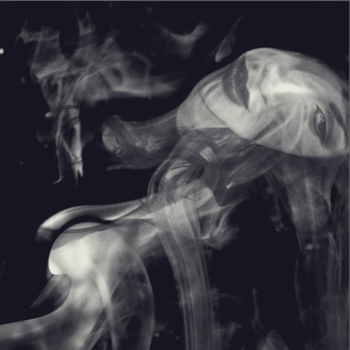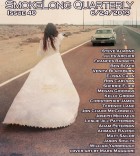Which came first: the quote or the story?
I’m a little embarrassed to admit this but I am miserably inadequate at generating titles, and the wrong one really can break a story. Frequently, after I’ve written a piece and can’t, for the life of me, think of a title to saddle it with, I start Googling quotes on a certain subject till I find one that gives me an idea. This story was originally called “Ransack”—I should be doubly embarrassed to admit that. I knew it was obviously a stinker. Finally, I found this quote, which works great as an epigraph and the title. Actually, I wrote this piece from a prompt provided by SignificantObjects.com—the object was a weird little doll, a voodoo talisman, with a pingpong ball for a head and a coat that looked like a bathrobe or karate jacket.
Because we know from the start that the wife is going to die, I love how little touches like the bathrobe and the nickname Chuck are both funny and sad at the same time. How hard was it to find that balance in a story about cancer?
I think that if you’re going to tackle a dark subject, you better find a way to incorporate some comic relief, just as when you’re writing a comic story, you better find a way to mix it up with a little sobriety. Every story needs balance—at least, it helps me to think that way when I’m writing. That voodoo doll gave me Chuck and the bathrobe (just a lucky gift), and who knows why I extended these details into a metaphor that tinges the story with a little dark humor. It was just instinct, I guess. Or more luck? But it didn’t exactly feel like effort or hard work.
The personified ailments are one of my favorite aspects. The image of cancer holding a knife to the wife’s throat is quite powerful. Do you think this helped the husband cope?
My mother has a genetic disease I carry the marker for, and I’ve always thought of it as some criminal who took her life hostage and may burst down my front door any day. For me, personifying the ailments isn’t so much a coping mechanism as it is a sign of sheer terror. The only thing that frightens me more than deadly diseases is a knife-wielding intruder. But the husband inviting all of the ailments to come home with him—well, my father and I once heard a writer read an essay about her father, sick and suffering a lingering death in a senior home. He asked her to help him escape this world, and so once when she had a really bad case of the flu, she visited her father and fed him soup, taking a bite herself, then giving him a bite, from the same spoon, hoping she might give him the window he so badly wanted to jump through. Ever since then, my father has told me there will come a day, if you live long enough, get old enough, that you actually bid the end to come for you.
In one of the more heartbreaking moments before the wife dies, she shows the husband how to load utensils in the dishwasher and add vinegar to laundry and wind the clock. Why do you suppose these mundane details seem so important to her?
Great life experiences are so important to us—grand adventures like going to college, traveling, obtaining fame, falling in love, etc. We think these are the signs that we have truly lived. But I worry that it’s the little things that will haunt us later, all the seemingly boring experiences we will regret losing. I think of the wife in this story as reminding herself of all the things she will miss, just the daily living, the totality of her life tending to her husband. And if she can teach him to do these tasks, she will still be taking care of him in some way, and in doing these chores after she is gone, he will remember her. She will still be there, an immortality of sorts. The lessons also helped me structure the story; I tried to tap that motif in every section of the story.
In the end, the husband imagines himself being torn apart by the family dog before being thrown in the trash by his son. Interestingly, he imagines himself full of stuffing. There seem to be a number of places to end a story like this, and I love that you chose to end fully inside the husband’s head and his strange fantasy. What drew you to that final scene?
Oh, that wonderful voodoo doll! It had to play a key roll in the ending, right? That was the rule. There was no way I could use the prompt literally, so I let it wander into fantasy. I knew the ultimate sorrow of death is feeling betrayed—either someone leaves you in this world alone or you’re the one dying while everyone else gets to live on. At first, I thought it would be the children who would deliver the ultimate betrayal to the father, because kids do that sometimes, fighting over the belongings left behind. But that seemed too obvious. And then I remembered that dog, his own fear of that boot-swinging cancer, and I added a couple of lines about him in earlier clips and then revised the ending so he was the one who delivered the last brutal blow, dancing, so to speak, on the man’s imaginary “grave.”



 The core workshop of SmokeLong Fitness is all in writing, so you can take part from anywhere at anytime. We are excited about creating a supportive, consistent and structured environment for flash writers to work on their craft in a community. We are thrilled and proud to say that our workshop participants have won, placed, or been listed in every major flash competition. Community works.
The core workshop of SmokeLong Fitness is all in writing, so you can take part from anywhere at anytime. We are excited about creating a supportive, consistent and structured environment for flash writers to work on their craft in a community. We are thrilled and proud to say that our workshop participants have won, placed, or been listed in every major flash competition. Community works.